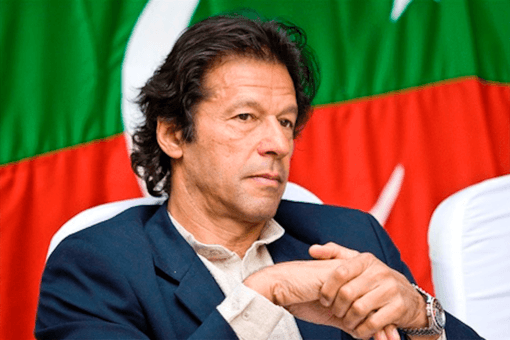
Photo source Jawad Zakariya | CC BY 2.0
Imran Khan’s win in the recent Pakistani elections is a cause for concern. Not only are there grave reservations about the manner in which he came to power–draconian media curbs preventing voters from making informed choices and politically-motivated judicial proceedings disqualifying opponents and denying participants a level playing field–but serious questions have also been raised about Imran Khan himself and his suitability to lead an important country like Pakistan. Some have likened him to Donald Trump. The comparison isn’t out of place, particularly when it comes to their attitudes towards women.
I first met Imran Khan in 1993. I was a college student in the United States at the time but was visiting my parents, who then lived in Saudi Arabia. Imran Khan was staying with very close friends of my family, trying to raise funds for a cancer hospital he wished to build in memory of his late mother, who had lost her life to cancer. His hosts, who had already contributed a very large sum for the hospital, were trying to help him raise more money by planning a fundraiser at their home.
The night before the fundraiser they had invited a couple of friends to meet Imran Khan informally. It was a small group, of only about ten people. The conversation had somehow drifted to Mike Tyson’s 1992 rape conviction. I had followed the case closely as I planned to go to law school one day, but was most disappointed with Imran’s flippant dismissal of the conviction.
“When a woman shows up at your doorstep at two in the morning,” he said, in Urdu, smirking, “what’s a man to do?”
Curiously, Donald Trump had also referred to Mike Tyson’s guilty verdict as a “travesty” on Howard Stern’s radio show back then. Both Imran Khan and Donald Trump have married three times each and have been accused by other women of sexual harassment. While Trump has regularly used sexually explicit vocabulary demeaning to women, Imran Khan once suggested that women who become members of the National Assembly on seats reserved exclusively for women may have gotten there by means that weren’t meritocratic and that would be unmentionable in polite company.
Intriguingly, last year, Ayesha Gulalai, a young female member of his party who had entered the National Assembly on a seat reserved for women did allege that Imran had sexually harassed her. His party’s response was to demean and threaten her. Similarly misogynist attacks have been made by his party workers against Reham Khan, his second wife, with whom his marriage lasted less than a year, and who recently wrote a tell-all book about her time with Imran Khan.
As in the case of Donald Trump, none of this seems to matter to Imran Khan’s supporters. Based on a CNN exit poll, more white women had voted for Donald Trump than for Hillary Clinton. Likewise, though such sophisticated polling isn’t available in Pakistan, Imran Khan’s supporters have often pointed out to me that a large number of urban middle class and upwardly mobile women support him. Surely, in neither case are the women supporters enamoured by the misogyny, but in both cases they are impressed by the celebrity status of the men.
Donald Trump was a high profile property tycoon and media personality, while Imran led the national cricket team to victory at the World Cup in 1992. Both men are outsiders claiming to reform politics, to “drain the swamp,” as Trump put it. Imran’s main theme has been to rid Pakistan of a corrupt dynastic political class. Trump had vowed to “lock crooked Hillary up.” Imran, with the help of a benevolent judiciary, has already had that job done for him. Former Prime Minister Nawaz Sharif, as well as his daughter, Maryam, who has never held public office but was largely seen as his political successor, are both in jail. He vows to bring the same fate to Asif Ali Zardari, another political opponent and the widower of the late Benazir Bhutto.
Both men are prone to discrediting media outlets that are critical. Just as Trump has accused respectable media houses of circulating “fake news” and has labelled journalists as “enemy of the people,” Imran Khan has also directly attacked those media groups that have been critical of his methods in politics or have reported favourably on his opponents, and has not hesitated in painting them as “anti-state”.
Both have used politics of fear, encouraged a sense of victimhood among the people at large and used either minority religious groups or other countries as scapegoats. Both promote anti-intellectualism and a peculiar dislike for liberals. Trump targets “liberal media” repeatedly while Imran has constantly mocked “khooni (bloody) liberals”. Thus both appeal to the baser instincts of their respective populations.
I vividly recall that when Donald Trump won the 2016 presidential race in the United States, my cousin’s wife, an American from Indiana, said, “I have never felt so hopeless about my country before, and the worst part is half my family voted for him.” I feel I am in exactly the same predicament today.